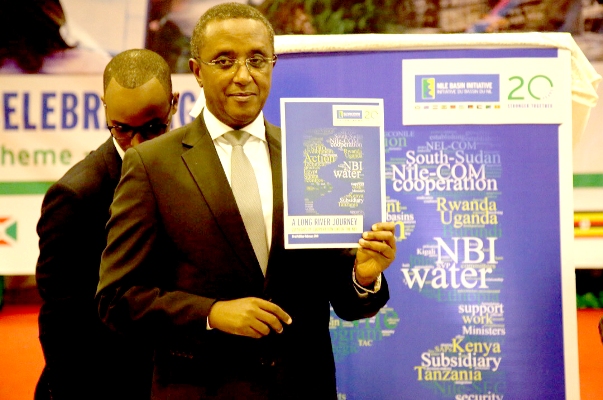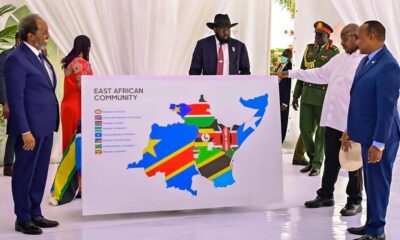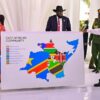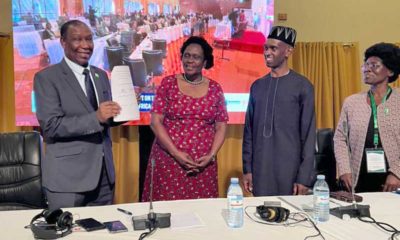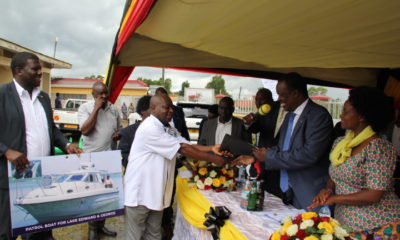human traffickingFeatures
Forging unity through bridging knowledge gap
Joint institutions and dialogue platforms have contributed to building mutual trust and confidence within the Nile Basin, writes Henry Lutaaya
The air of suspicion and tension that once threatened Nile Basin relations, is slowly being replaced by open, candid and friendly talks that go beyond the strict spheres of trans-boundary nature, according to Dr. Callist Tindimugaya, a Commissioner for Water Resources Planning and Regulation in Uganda’s Ministry of Water and Environment.
“NBI [the Nile Basin Initiative] has done a lot to bring countries together so that they can talk on a common ground. First of all, people didn’t know each other. You’d find Ugandans seated alone, Kenyans seated alone. But over the years, the interaction among teams increased.”
He adds that through organising regular meetings, technocrats and experts have formed lasting bonds in the course of discussing matters of common interest.
“Sometimes you’d call a friend [from another member country] and say we are working on irrigation, have you developed a policy, then the person could say yes, and they could share with me,” says Dr. Tindimugaya.
The regular interactions between teams of experts from member countries have allowed for countries to replicate developments in the water sector by simply discussing with colleagues, Tindimugaya says.
“NBI created many platforms for shared learning. Sometimes, when you have different information, you tend to believe that someone is deceiving you. But when you’re discussing reports that have covered the whole basin, you realise that you now know the basin beyond your national boundaries. Then you realise you have a lot in common. You tend to realise that you cannot address a problem as a country without involving the others.”
Building a knowledge base
Through numerous studies and surveys, skills development programmes and outreach activities, the region has made itself an unparalleled hub of knowledge and information about the Nile Basin, not found anywhere else in the world.
Thanks to the Nile Basin Initiative, some 30,000 people have also been trained to improve the region’s ability to manage the Basin. In addition, the Cooperation’s three arms have ammassed a mind-boggling10,000 knowledge products. This includes an Atlas for the entire Nile Basin.
This work has been underpinned by the development of numerous strategies that have advanced Member States’ shared goals.
And by organising a bi-annual Nile Basin Development Forum, for example, NBI has provided greater opportunities for more open discussions of the challenges, opportunities facing member countries of the basin by scientists, policy makers and the civil society.
Leveraging capacities
Dr. Tindimugaya observes that huge disparities in knowledge that existed between member countries, prevented teams from sharing.
“When we started, some countries were highly experienced and others were at lower level and you know when you get people who are at different level of understanding, others will fear that may be what I am going to say will expose my ignorance. Now you find that people are talking at the same level. Of course disparities will remain but when you’re discussing an issue, all countries will be able to discuss the same issue,” stresses the expert.
In order to address the disparities, NBI sought organised knowledge sharing and skills development programmes for representatives seconded by member countries. These skills have greatly helped boost the knowledge and confidence of experts.
Talking to an expert:
In an interview with Eng. Sowed Sewagudde, a principle water officer in charge of transboundary water affairs Ministry of Water and Environment, under the Directorate of Water Development in Uganda, he explains how the NBI has helped to bridge the knowledge gap and the benefits that have come along with capacity development.
How has NBI contributed in bridging the knowledge gap between countries?
NBI has been very instrumental in building the knowledge gap. To start with, they have developed analytical tools that are aimed at creating equal capacity within countries so that when countries go for negotiations, they are able to speak at the same level. Previously, we used to have a scenario where some of the countries were technically more advanced in terms of the analysis or understanding of resources and yet others didn’t have the technical capacity.
This meant that when you were discussing, you would have a skewed kind of discussion in which some partner countries could not articulate their interests very well, given the fact that they were lacking in capacity to do an analytical understanding of the resource base.
In an interview with Eng. Sewagudde, besides training technocrats, NBI has reached out to the community by creating awareness about different undertakings.
“NBI has had a number of awareness campaigns. Sometimes this is done at the regional level, and sometimes at the country level, where countries organise workshops to sensitise people about NBI’s on-going activities.
“We’ve been able to reach ordinary people, especially in areas where NBI has had investment projects. For example, for the Sio-Malaba Malakisi area, NBI supported communities to undertake some livelihood improvement projects using water resources as an input.”
Comments



